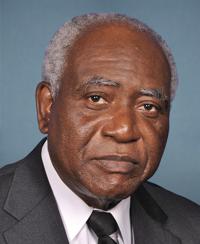0
Emmett Till and Mamie Till-Mobley and Roberts Temple National Historic Site Act
1/11/2024, 8:00 PM
Summary of Bill HR 4607
Emmett Till was a 14-year-old African American boy who was brutally murdered in Mississippi for allegedly whistling at a white woman. His mother, Mamie Till-Mobley, made the decision to have an open casket funeral for her son, which sparked national outrage and brought attention to the violence and racism faced by African Americans in the South.
The bill seeks to preserve the memory of Emmett Till and Mamie Till-Mobley, as well as the historic significance of the Roberts Temple Church of God in Christ. It would provide funding for the maintenance and interpretation of the site, ensuring that future generations can learn about this important chapter in American history. Overall, the Emmett Till and Mamie Till-Mobley and Roberts Temple National Historic Site Act aims to honor the legacy of Emmett Till and his mother, and to educate the public about the struggles and triumphs of the Civil Rights Movement.
Congressional Summary of HR 4607
Emmett Till and Mamie Till-Mobley and Roberts Temple National Historic Site Act
This bill establishes the Emmett Till and Mamie Till-Mobley and Roberts Temple National Historic Site in Illinois as a unit of the National Park System.
The site must not be established until the Department of the Interior enters an agreement with the Roberts Temple providing for public access to, and interpretation, operation, and maintenance of, a site that is sufficient to constitute a manageable park unit.
The purpose of the site is to preserve, protect, and interpret (1) the Great Migration, (2) the memorial service and funeral of Emmett Till, (3) the story of the courage and activism of Mamie Till-Mobley that was demonstrated as she transformed the murder of her son into a symbol of racial injustice, and (4) the civil rights movement.
Interior may enter into agreements, as appropriate, with public and private entities to provide and facilitate interpretive and educational services, administrative support, and technical assistance relating to the site, within or outside the boundaries of the site.
The National Park Service must prepare a general management plan for the site.





